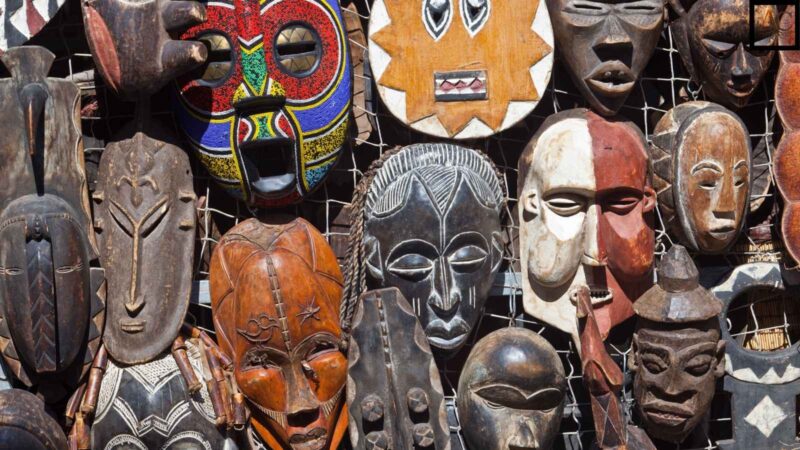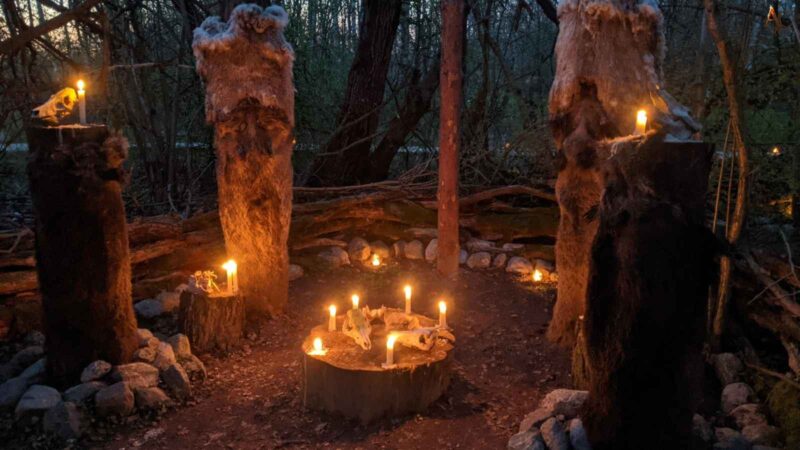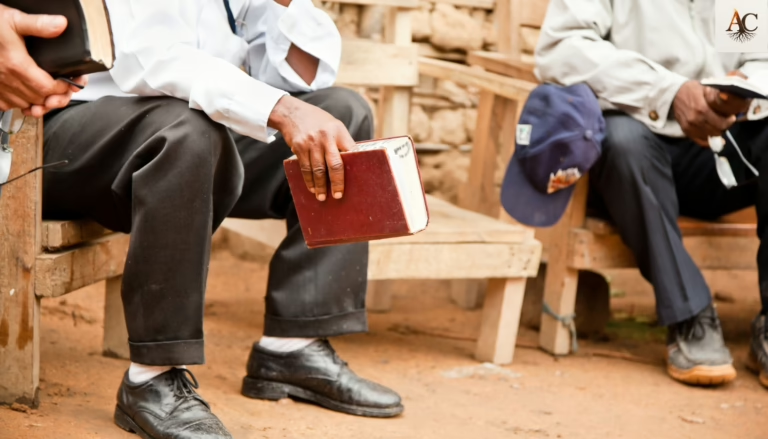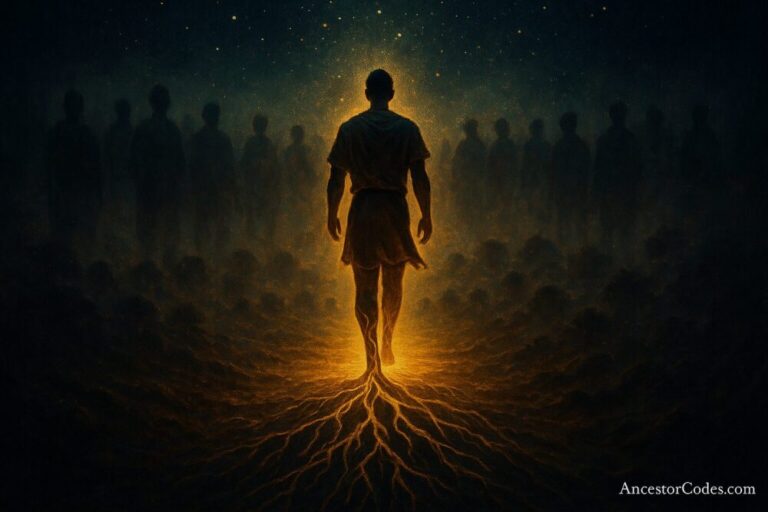
African ancestral spirituality is a living relationship with your lineage, remembering those who walk the earth before you so you can walk wisely now.
It’s not complicated. It’s family centered, ethical, and practical: gratitude, good character, and daily guidance.
All you need to begin is: respect, remembrance, and rhythm.
Think of it as a clear, steady conversation with your people through simple rituals (water, candle, libation), honest intentions, and responsible action in your community.
Swahili (East Africa): “Mti hauachi mizizi.” — A tree does not abandon its roots.
Start at the roots. Grow from there.
Table Of Contents
- The Short Answer (African Ancestral Spirituality Explained)
- Not Religion Vs. “Witchcraft”: What It Really Is
- The Four Pillars: Remembrance, Relationship, Reciprocity, Responsibility
- Start Today: Simple Practices (Altar, Libation, Journal)
- How Guidance Arrives: Dreams, Signs, And Elders
- One Root, Many Traditions (Regional Expressions Across Africa)
- Boundaries, Safety, And Ethics
- Living Legacy: Lineage Healing And Community Impact
- Action Box: Start In 5 Minutes
- FAQ: Straight Answers
- Closing Word + Call To Share

1. The Short Answer (African Ancestral Spirituality Explained)
African ancestral spirituality means honoring your ancestors by name when known, by intention when their names is unknown to you so their wisdom shapes your daily choices.
It is home based (altars, water, candle, prayer), community-shaped (respect for elders, care for the vulnerable), and future-focused (healing patterns, building legacy).
If you’re searching “what is ancestral veneration,” “how to honor ancestors,” or “African spirituality practices,” the essence is simple memory plus responsibility. You greet, you give thanks, you ask for clarity, then you act with good character.
A practical family relationship that turns remembrance into guidance.
2. Not Religion Vs. “Witchcraft”: What It Really Is
- Not a replacement for religion. Many Africans honor ancestors alongside Christianity or Islam. Spiritual gratitude complements faith.
- Not worship of the dead. You do not replace the Creator; you respect elders who carried life to you.
- Not harm-based magic. Real ancestral practice rejects manipulation. It is grounded in truth, service, and character.
If a practice violates your conscience or harms others, it’s not ancestral spirituality, it’s misalignment.
Note: Remembrance and ethics, not idolatry, not manipulation.
3. The Four Pillars: Remembrance, Relationship, Reciprocity, Responsibility
Remembrance
Tell stories, record names, keep photos. If lineages are missing, honor “the known and the unknown” who walked in good character. Rich living: you are indexing your lineage so guidance is easier to find.
Relationship
Talk daily gratitude first, requests second. A small ancestral altar keeps your focus: water, candle, and a notebook.
Reciprocity
You receive guidance; you offer thanks, service, and repair apologize where your line caused harm, help where your line lacked help.
Responsibility (Character)
Yoruba (West Africa): “Ìwà l’ẹwà.” — Character is beauty.
A clean life amplifies your prayers.
Remember your people, relate with respect, give back, and live right.

4. Start Today: Simple Practices (Altar, Libation, Journal)
Ancestral Altar Setup, learn more: (how to build an altar at home)
- White cloth, clear water in a glass, candle or lamp, and a notebook.
- Keep it clean, safe, and consistent. Replace water daily, wipe the surface weekly.
Morning Greeting (30–60s)
“Ancestors who walk in truth, thank you. Guide me to act with clarity and courage today.”
Libation
Pour a little water and gin to living soil or a plant. Name who you can. Include those unknown but loving.
One-Line Journal
Date + one intention: “Be patient with family” or “Finish the hard task.”
Over time, this becomes your evidence of guidance.
Note: Small, steady rituals beat complicated, rare ceremonies.
5) How Guidance Arrives: Dreams, Signs, And Elders
Guidance often lands through dreams, meaningful synchronicities (e.g., seeing 111, 222, 11:11 during key decisions), a sudden inner calm, or a timely word from a wise elder.
Discernment Checklist (spiritual discernment, signs from ancestors):
- Record first, test later. Write the dream/sign; check results over time.
- Ask: Does this grow my character and service?
- Stay balanced: Food, sleep, movement spirit works best with a healthy body.
Zulu (Southern Africa): “Indlela ibuzwa kwabaphambili.” Ask the road from those ahead.
Read more: The sacred role of dreams
Write signs down and let consistent results not hype to confirm the message.
6) One Root, Many Traditions (Regional Expressions Across Africa)
The heart is the same, honor, ethics, community but expressions vary:
- West & Central Africa (Ancestor veneration West Africa): libation, praise names, family shrines; divination systems like Ifa/Afa in trained hands.
- East/Horn (Ethiopian coffee ceremony spirituality): hospitality rituals, elder blessings, sacred hills and springs.
- Southern Africa (Sangoma, bone reading ethics): ancestor acknowledgment through song/praise poetry; herbal wisdom via trained healers.
- North Africa & Sahel (Maghreb traditions remembrance): family remembrance aligned with local customs, prayer, and gatherings.
You’re not copying strangers you’re locating your thread.
Note: Same root, local form; choose what aligns with your lineage and conscience.

7) Boundaries, Safety, And Ethics
- No harm, no manipulation. Ancestral support never requires injuring others.
- Consent and privacy. Keep your practice respectful; avoid pressuring relatives.
- Home safety. Don’t leave candles unattended.
- Well-being first. If distressed, talk to a qualified professional and keep rituals simple and grounding.
Hausa (West Africa): “Komai nisan jifa, ƙasa zai fāɗi.” — No matter how far a throw goes, it lands on the ground.
Return to grounding when confused.
8) Living Legacy: Lineage Healing And Community Impact
Ancestral spirituality must change how you live:
- Family Repair: Apologize where your line caused harm; end cycles (violence, dishonor, debt).
- Service: Mentor one younger person; share skills; open doors.
- Land & Livelihood: Care for soil and fair business, your name is a seed.
Akan (West Africa): “Sankofa.” — Go back and fetch it. Learn from the past; build the future.
Action Box: Start In 5 Minutes
- Clear a corner; lay a white cloth.
- Place a glass of water + notebook and pen.
- Say thanks (30s): honor known and unknown ancestors who walk in truth.
- Set one intention for the day; write it down.
- Repeat tomorrow at the same time your first rhythm.
FAQ: Straight Answers
1) Is this ancestor worship?
No. You honor elders; you don’t replace the Creator. It’s gratitude, guidance, and character.
2) Can I do this as a Christian or Muslim?
Yes. Many Africans do. Keep it ethical, simple, and aligned with conscience and scripture as you understand it.
3) What if I don’t know my family history?
Honor “the known and the unknown.” Start with gratitude; learn names through elders, records, or dreams over time.
4) I feel nothing. Is it working?
Give it 21–40 days. Look for calmer decisions, stronger boundaries, and better relationships.
5) Do I need a diviner to start?
No. Begin at home with gratitude and good character. Seek trained help when needed and verify ethics and reputation.
Closing Word + Call To Share
Zulu (Southern Africa): “Umuntu ngumuntu ngabantu.” — A person is a person through other people.
If this awakened something in you, comment with your first step and share with someone who needs a clear, honest start.






